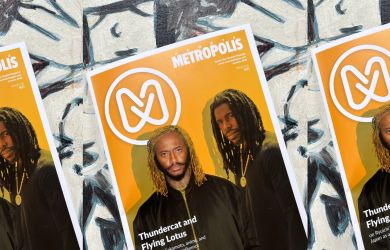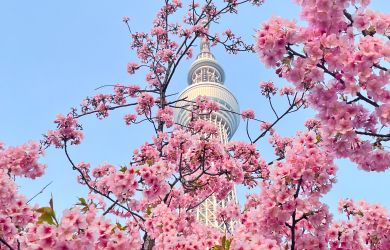
Originally published on metropolis.co.jp on May 2010

Courtesy of Flavio Souza
There are lots of people who believe that technology will be the undoing of humanity. (If you’ve seen the Terminator movies, you’ll know what we’re talking about.) Whether it’s bio-engineered microbes, genetically modified food, or just plain old toxic byproducts, the negative repercussions of technological innovation, they say, will eventually get out of hand. But for every person who subscribes to such a neo-Luddite view, there are others who believe that the solution to these problems is more and better tech. Flavio Souza, creator of the website GreenITers.com, falls solidly into this category.
“We cannot simply ignore [technology’s] existence,” he says. “Therefore, we have to leverage what we have learned so far [to promote] greater causes, like making our planet healthier.”
After becoming concerned about climate change a few years ago, Souza, a native of Brazil who is also CEO of digital solutions company Fullcircle Innovations, developed a three-pronged approach to combat it. First, people should begin limiting actions that have a negative impact. Second, existing resources should be protected. Finally, the pace of innovation should be increased and a new generation educated about relevant issues.
“I thought, due to my background in IT and marketing, that I was more suitable to tackle item three on the list,” he says. “So, the plan was pretty simple: create a global online community where knowledge-sharing would play an important role in speeding up learning and sparking future innovations toward a more sustainable world.”
The result is GreenITers.com, which, despite its recent arrival on the scene, is growing fast and already making an impact.
“It is people with the passion for progress that make the biggest contribution, and in the case of greener technological solutions, there are many individuals—expert and amateur alike—who want a community to discuss ideas,” he explains. “GreenITers provides such a community, where everyone from top academics to the average person with an interest in… eco-friendly IT can get together online and share ideas, new gadgets, scientific news and breakthroughs.”
In addition to news sharing, photo posting, blogs and videos, the site features discussion boards on a wide variety of topics, including clean technology sectors like solar, wind, electronic vehicles and green building. Other categories are being added as the site evolves and members with more diverse interests join.
The global aspect of the community is important, Souza says, since it allows a large amount of information to be aggregated in one language. For example, Japan is a country of great technological innovation, but the language barrier makes it difficult for people overseas to tap into what’s going on here. The community already boasts hundreds of members from 49 countries who can contribute news about what is happening in their area.
The collaborative environment has already produced some success stories. Greening It, a book that details how the IT sector can help promote low-carbon societies, was created with the input of GreenITers and distributed at last year’s UN COP15 conference on climate change. The group has also received approval to develop an iPhone app called greenit!, which allows users to edit pictures taken on their phone. By adding items like trees or solar panels, they can create a model of how places in their day-to-day life could be made more sustainable.
Souza is confident that GreenITers will continue to make positive contributions commensurate with the growth of the community. He’s set a goal of reaching 1,000 members by June, and hopes that some of those will be Metropolis readers. “It’s fast, easy and free to join,” he adds.
Whether technology turns out to be our destruction or our salvation remains to be seen, but one thing is clear: we must try to use it in a positive and sustainable way. As a proverb that Souza is fond of quoting says, “We do not inherit the earth from our ancestors; we borrow it from our children.” And we should probably hand it over in better shape than we found it in.
To find out more about GreenITers, see www.greeniters.com.







